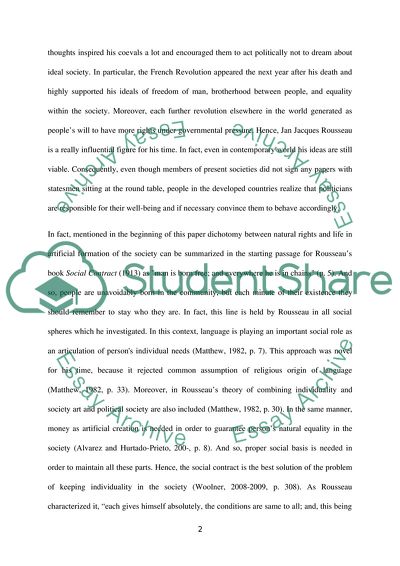Cite this document
(Jean Jacques Rousseau and Theodor Adorno in the Development of Social Essay, n.d.)
Jean Jacques Rousseau and Theodor Adorno in the Development of Social Essay. https://studentshare.org/sociology/1835482-for-the-following-two-thinkers-outline-their-key-ideas-and-assess-the-extent-to-which-their-work-has-contributed-to-the-development-of-social-thought-jean-jacques-rousseau-and-theodor-adorno
Jean Jacques Rousseau and Theodor Adorno in the Development of Social Essay. https://studentshare.org/sociology/1835482-for-the-following-two-thinkers-outline-their-key-ideas-and-assess-the-extent-to-which-their-work-has-contributed-to-the-development-of-social-thought-jean-jacques-rousseau-and-theodor-adorno
(Jean Jacques Rousseau and Theodor Adorno in the Development of Social Essay)
Jean Jacques Rousseau and Theodor Adorno in the Development of Social Essay. https://studentshare.org/sociology/1835482-for-the-following-two-thinkers-outline-their-key-ideas-and-assess-the-extent-to-which-their-work-has-contributed-to-the-development-of-social-thought-jean-jacques-rousseau-and-theodor-adorno.
Jean Jacques Rousseau and Theodor Adorno in the Development of Social Essay. https://studentshare.org/sociology/1835482-for-the-following-two-thinkers-outline-their-key-ideas-and-assess-the-extent-to-which-their-work-has-contributed-to-the-development-of-social-thought-jean-jacques-rousseau-and-theodor-adorno.
“Jean Jacques Rousseau and Theodor Adorno in the Development of Social Essay”. https://studentshare.org/sociology/1835482-for-the-following-two-thinkers-outline-their-key-ideas-and-assess-the-extent-to-which-their-work-has-contributed-to-the-development-of-social-thought-jean-jacques-rousseau-and-theodor-adorno.


